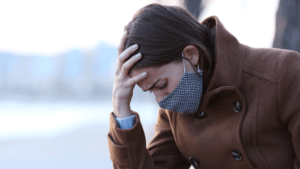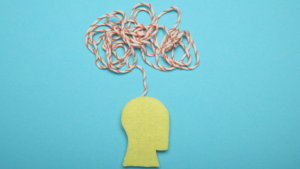COVID Related Health Issues
What started as a cluster of unexplained cases of pneumonia in China, COVID-19 has now become one of the most impactful diseases to affect mankind with over 73 million confirmed cases and 1.6 million recorded deaths worldwide. Warning, this article discusses suicide and can trigger some individuals.
Almost a year into this pandemic, the world is facing another health crisis – a rise in mental health problems brought about the sudden changes within our daily lives. Just like the world is unprepared for the coronavirus, a study published in The Lancet states that “the world was woefully unprepared to deal with the mental health impact of this pandemic”. In the next months, many countries will have an increased rate of COVID-related mental health issues due to the risk factors brought about by this pandemic, such as social isolation, unemployment, financial stress, and grief and loss.

Socialization has been widely correlated with psychological well-being and a more positive outlook on life. COVID-19 social isolation was found to have a negative impact on the psychological and mental well-being of individuals in several countries. As a consequence of government isolation measures, risk factors for mental health issues have been on the rise partly due to a decrease in socialization.
A Rise in COVID Related Mental Health Issues
Prior to COVID 19, only nearly 1 in every 5 American adults reported having a mental illness in the past year. In a poll conducted during the middle of the pandemic, over half of Americans have reported increased worry and stress over the pandemic. Many are also reporting specific problems: as much as 32% of adults are reporting difficulties with sleeping, 32% with problems in eating, and nearly 12% have admitted to increasing alcohol and substance use – all brought about by this pandemic.
Depression
According to the CDC, the prevalence of depressive disorder was approximately four times that reported in 2019 (24.3% versus 6.5%). These depressive symptoms include sleep troubles, lethargy, and feelings of hopelessness. The lack of face-to-face interaction has had negative effects on Comparing to other traumatic events in history such as the 2003 SARS outbreak and the Ebola outbreak, depression rates only rose to at most double.
Substance Abuse
Increased stress can lead to increases in the use of alcohol and substance abuse. Alcohol sales have risen by 27% in the early phases of the lockdown. In the wake of problematic unemployment and isolation from others, people have resorted to using prohibited substances. People have turned to these are their companions due to the loss of socialization with others.
Some of the most commonly abused substances throughout the pandemic include alcohol, tobacco, and opioids. The isolation periods have pushed back people to their bad old habits and encouraged new ones.
Suicide
In the study released by CDC, approximately twice as many respondents reported suicidal ideations and thoughts compared to the preceding year (10.7% versus 4.3%). Suicidal ideations include talking about wanting to die, researching ways to die, feeling guilt or shame, feeling empty, and full of anger or pain.
The grief and loss of family and loved ones may trigger one’s suicidal ideations. The psychological effects of COVID 19 is expected to persist and increase suicide rates even after the pandemic is over.
Health Anxiety
In addition to the risk factors and COVID related mental health issues stated above, several journals have theorized that the mental health impact of this pandemic is a result of health anxiety. Health anxiety is loosely defined as “misinterpretation of perceived bodily sensations and changes”.
During this pandemic, exaggerated or inaccurate information from the media can cause an unnecessary rise in health anxiety. The spectrum of effects goes both ways: health anxiety can lead to repeated medical consultations, or it can lead to avoidance of seeking help even when necessary.

We Are Here
The coronavirus pandemic is stressful for many individuals. There is a constant fear and anxiety about this new disease and the uncertainty of outcomes. The rise in mental health issues is not only experienced in the US, but in many countries as well. Whenever you feel stressed and worried, do know that you are not alone. Contact MindShift Psychological Services near me, which provides guidance for coping with some of these things for people in Riverside, California, Corona, California, and Los Angeles, California. Individual Therapy and Group Therapy near me might help you learn effective anxiety and stress management skills. Choose MindShift Psychological Services and begin your journey towards the brighter side of life.



